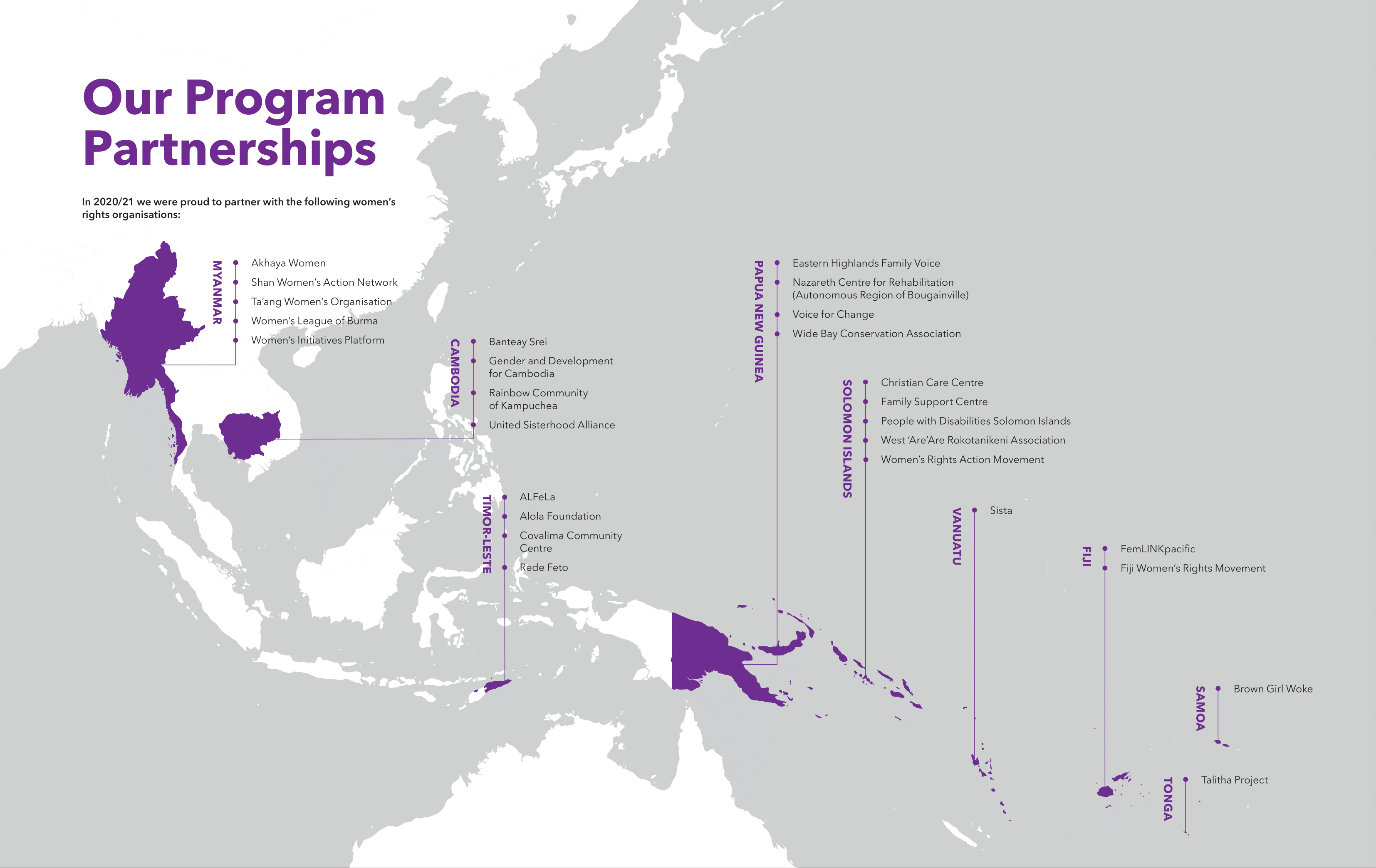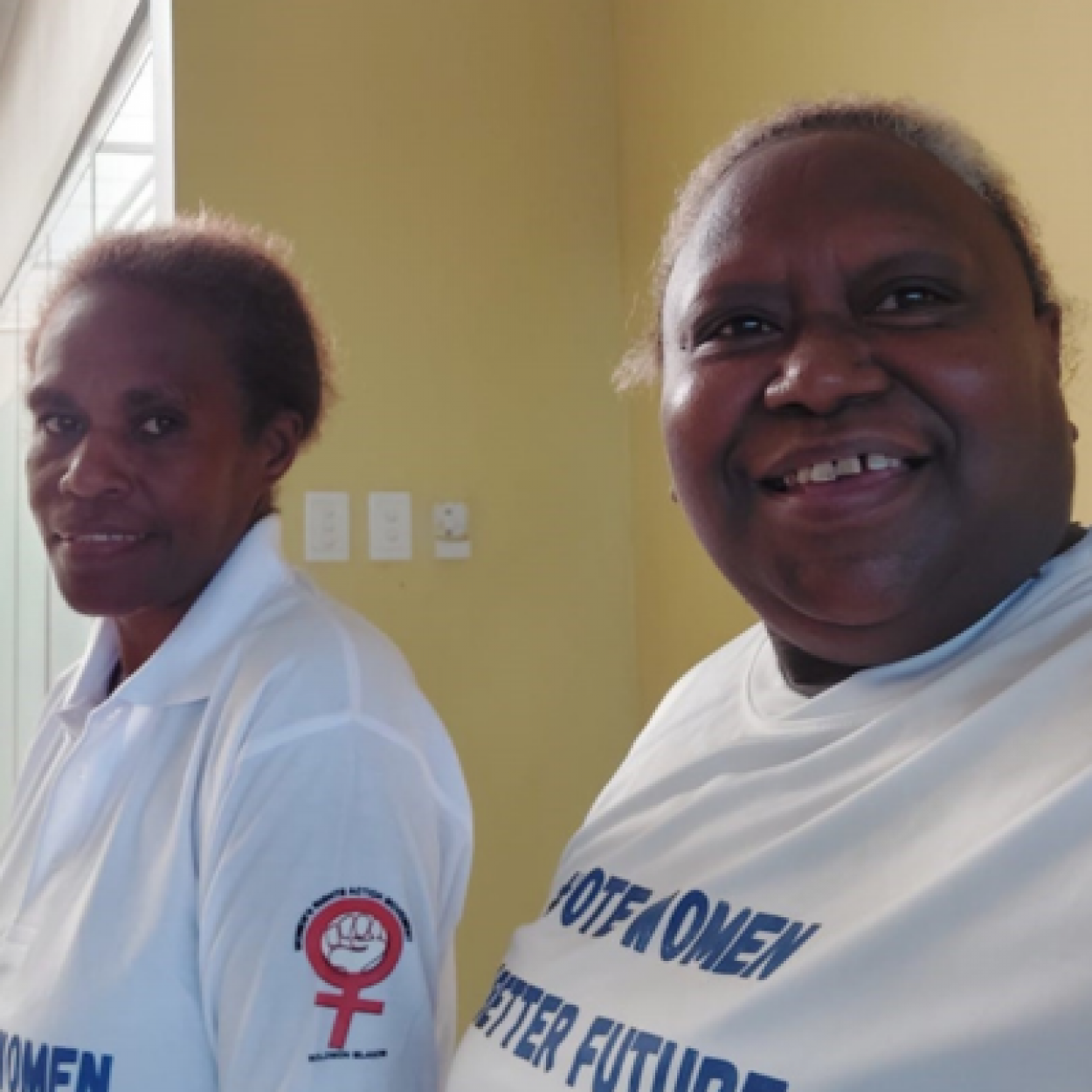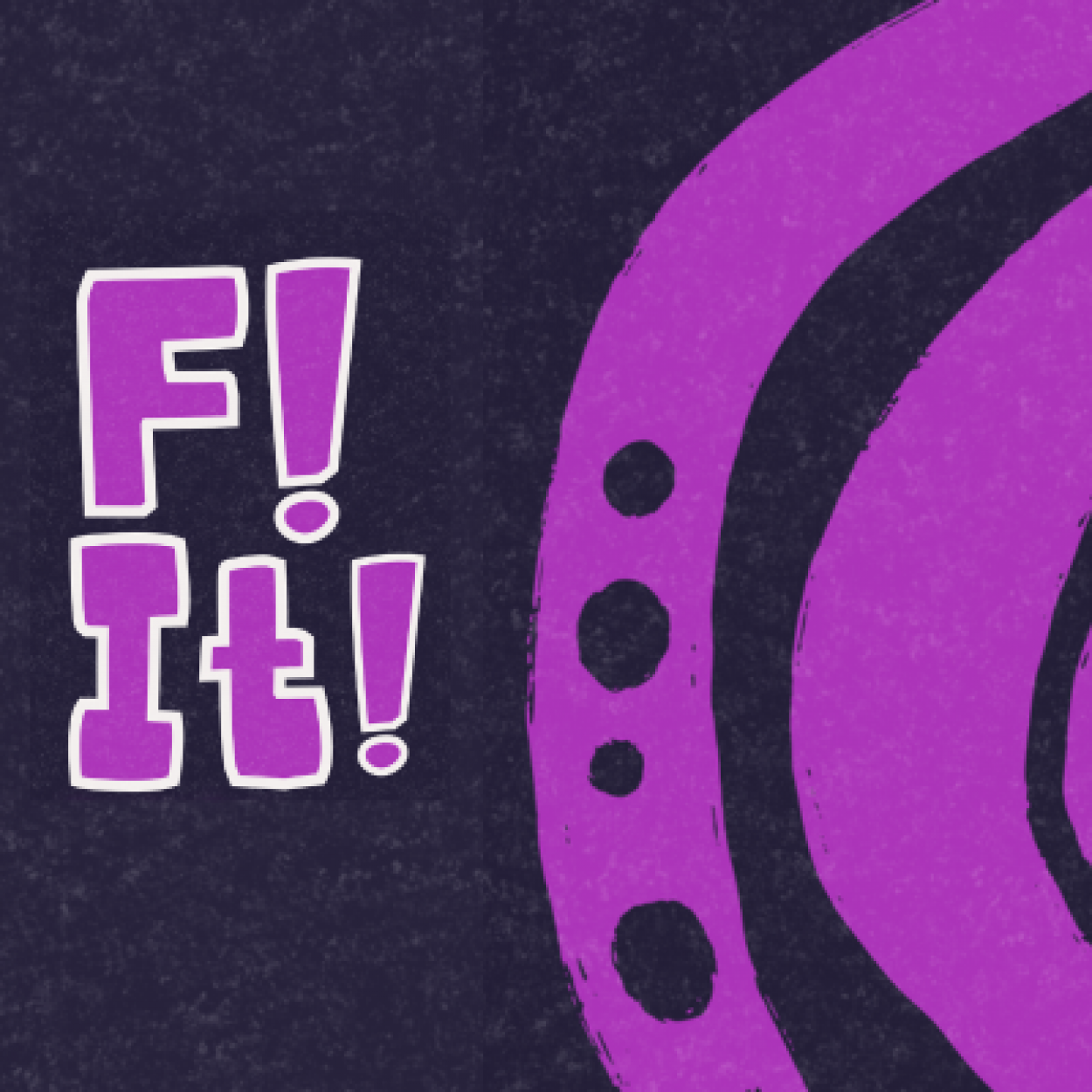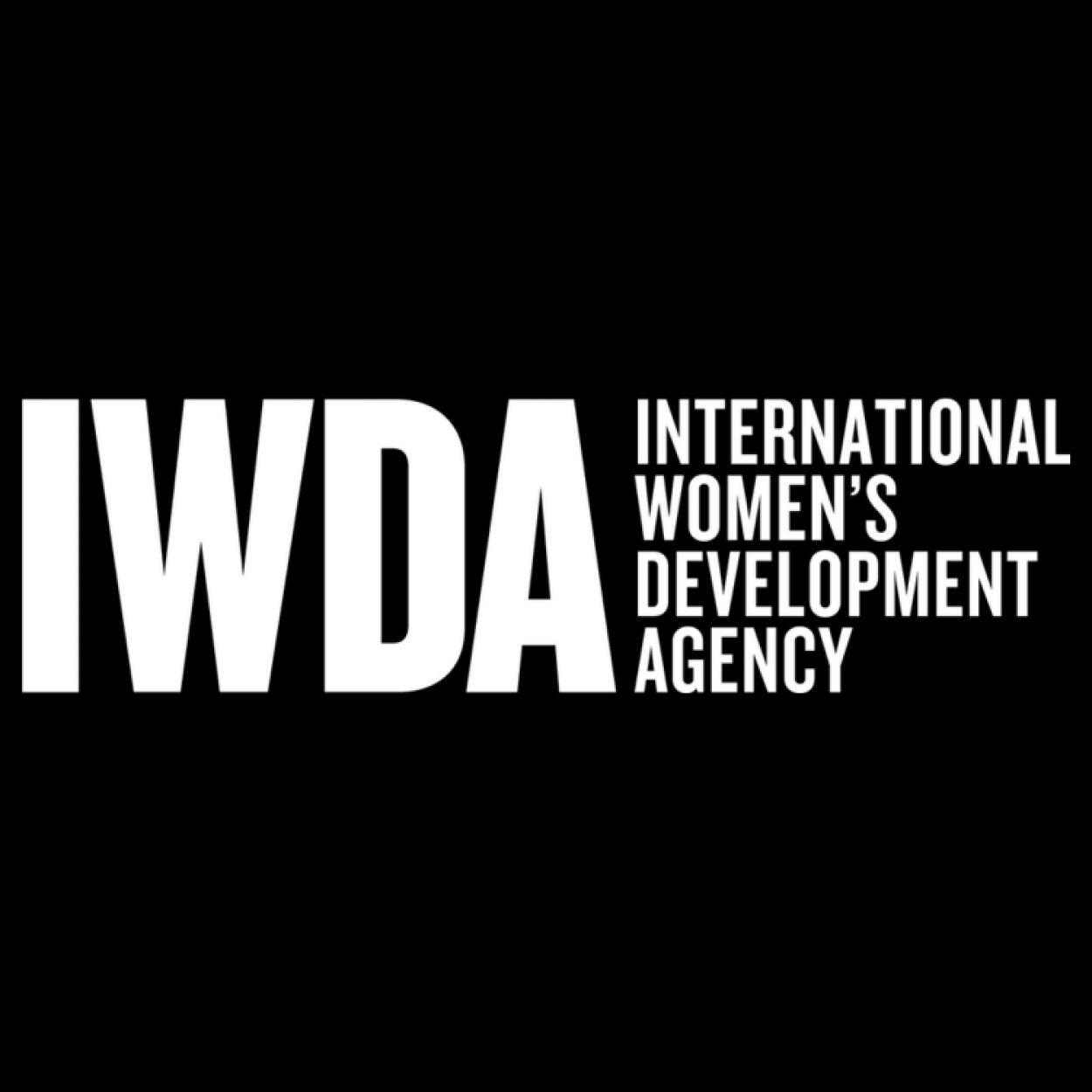Our Work
Our vision is gender equality for all
IWDA is an Australia-based organisation, resourcing diverse women’s rights organisations primarily in Asia and the Pacific and contributing to global feminist movements to advance our vision of gender equality for all.
We have worked for more than 35 years to defend and advance the rights of diverse women and girls.
Our roots are in the development sector, as Australia’s only development organisation entirely focused on gender equality. This brings strengths in the form of deep and long-lasting relationships with the network of women’s rights organisations we support. And increasingly, our future lies as part of the global feminist movement.
IWDA’s approach represents a third way between the models of women’s funds and international development NGOs: we resource the work of diverse women’s rights organisations, enable them to be more effective by providing support that goes beyond money, and we make our own contributions to feminist movements through advocacy, knowledge creation and translation.
Our Values
FEMINIST
We respect women’s diverse experiences, identities, knowledge and strengths and strive to empower women to realise their full and equal rights.
ACCOUNTABLE
We are honest and transparent and are committed to evaluating and communicating the outcomes of our work with integrity.
COLLABORATIVE
We build trusting relationships and strong partnerships as we believe that advancing together is crucial for achieving progressive change.
TRANSFORMATIVE
We are determined to make real, lasting improvements in women’s lives by transforming the root causes of gender inequality.
The 3 goals that guide us
1. Resource and contribute to resilient and vibrant feminist movements, primarily in the areas of power, leadership and civic space and freedom from violence.
Resilient and vibrant feminist movements are critical to defending and advancing the rights of diverse women, girls, trans and gender-diverse people. This will move us towards achieving our vision of gender equality for all.
Read more about our work resourcing women’s rights organisations.
2. Promote systemic change towards gender equality
We contribute to systemic change through our own knowledge creation and advocacy which seeks to resource, produce and encourage uptake of feminist and decolonial knowledge to transform discourse on gender equality, and by resourcing the work of others in the movement. We collaborate with feminist movements and other strategic partners, adding our voice to collective efforts towards systemic change and gender equality for all.
Read more about our work promoting systemic change.
3. Build a resilient and relevant feminist organisation
To ensure IWDA is an effective ally, we are committed to being a resilient organisation with a strong organisational culture that promotes wellbeing and diversity. This includes furthering disability inclusion in our work and within our organisation, striving to become an explicitly anti-racist feminist organisation and advancing First Nations justice in Australia.
Read more about our accountability and transparency.
Explore our Strategic Plan for more information on our work.
Decolonising our approach
IWDA is committed to decolonising our work and practices as we strive to become the best we can be at partnerships across the Majority and Minority Worlds. This means we seek to understand and leverage our locational power so that we know when to:
STEP UP and use our power to leverage resources and access for women’s rights organisations and feminist organisations, and make our own contribution to feminist movements
STAND WITH feminist movements in solidarity and amplify the work of Majority World actors
STEP BACK when others are better placed to take the lead
SIT WITH uncertainty, embrace communal learning and deep listening, and accept that time is needed to collectively discern the best course of action.
In the last 12 months
549
women assumed leadership positions
39,440
people participated in sessions on gender issues and women’s equal rights
2,730
women survivors of violence received counselling and other support services






